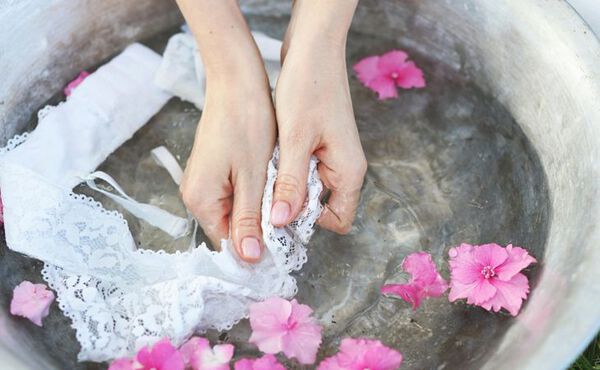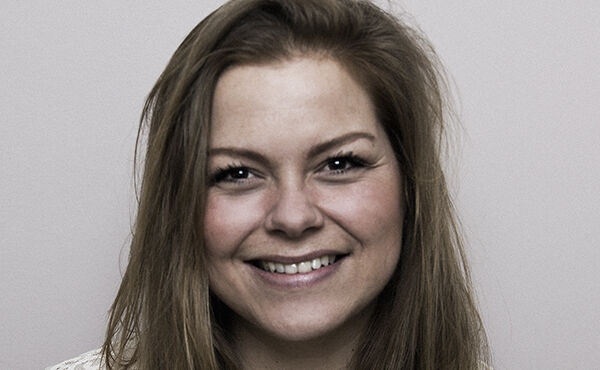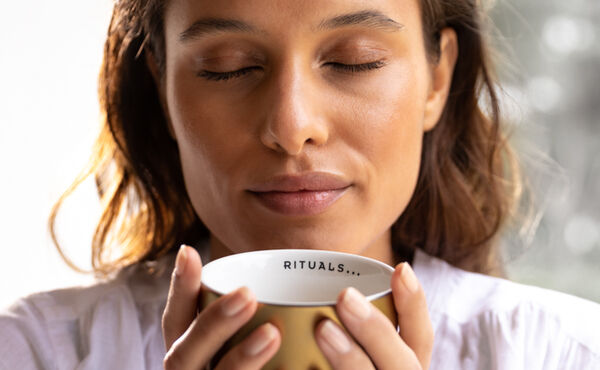After months of cocooning, there comes a moment when the first buds start to push up through the soil, weak sunlight strains in through streaky windows, and the urge for fresh starts and well-ordered homes takes hold.
But while we might think that cleaning as an act of self-care is a modern phenomenon, spurred on by the rise of decluttering influencers such as Marie Kondo, the cyclical need to spring clean has its roots deep in human history. It crosses continents and cultures with one thing binding it: the holistic benefits of driving away ‘bad luck’ and welcoming in new, positive energy.
Before the Lunar New Year for example, which marks the end of winter and the beginning of spring (falling on February 1 this year), it is Chinese custom to perform a house-cleaning ceremony, known as da sao chu, to rid the house – and its occupants - of bad luck. As well as cleaning, it also involves finishing projects and mending broken items. The house must be spotless for the new year, when no more cleaning can take place during the 16-day celebration – after all, you wouldn’t want to clean away the new, good luck that is now in residence.
Meanwhile Nowruz, the Iranian tradition of spring cleaning, involves bigger projects such as washing carpets, repainting the house and cleaning the attic. Meaning “shaking the house”, Nowruz derives from the idea of cleanliness as a powerful force to keep evil away ahead of Naw-Rúz, the first day of the Baháʼí calendar year, on March 21.
And before Passover (this year April 15 - 23rd) which marks the freedom of Jews from slavery in Egypt, all traces of chametz (food made of fermented grain) must be removed from the home – right down to the tiny crumbs. The deep clean, a process called koshering, is as Lise Stern explains in How to Keep Koshering, a two-day process: items need to be first cleaned, and then after 24 hours, sterilised.
Of course the concept of spring cleaning has long been popular in the West too. As historian Lawrence A. Kreiser Jr notes, “spring cleaning was an annual custom in the American home by the 1870s”, with traditional techniques in Britain including using stale bread to refresh wallpaper and skimmed milk to clean stone floors, according to the conservation charity The English Heritage. But without the promise of a big celebration to follow, such as that 16-day Lunar New Year party in China, it’s perhaps no surprise that a western deep clean has been more associated with drudgery and servitude than joy and gratitude.

Until now that is. Best-selling books from the likes of Kondo, Nobel Peace Prize nominee Thich Nhat Hanh and Japanese Buddhist monk Shoukei Matsumoto have all spread the message that elevating our ‘chores’ can have profound effects on our personal wellbeing – not just our personal spaces.
“I believe that our homes are a physical representation of our emotional wellbeing and also our biggest vision board,” agrees Tamu Thomas, the founder of the holistic wellbeing coaching business Live Three Sixty (livethreesixty.com). “Our home is our safe haven, so a home environment that feels clean and light creates a sense of restoration and healing.”
Before any big new life project, Tamu embarks on a deep clean. “Not only does my home look lovely, but as a big clean changes the energy of our homes, I always find my personal energy increases.” Alongside this she burns frankincense “to cleanse and ward off negative energy.”
Connecting a clean with the spiritual is something that Shoukei Matsumoto, author of A Monk's Guide to a Clean House and Mind, encourages too. He writes about how the monks at his temple begin the day by sweeping – not because the temple is dirty, but as a symbolic process to clear out the gloom in their hearts. Not only is it a poetic take on a chore – who wouldn’t relish a little less gloom in the world? - but the uplift in mood is also confirmed by science. A Princeton study found that clutter and dirt can have a negative impact on your ability to focus or process information while a UCLA study found a correlation between women’s stress levels and untidy homes. In contrast, research by the Happiness Institute found that 73% of people who are happy with their home are also happy in life.
Vicky Silverthorn, professional organiser at YouNeedAVicky.com with former clients including singer Lily Allen and author of Start With Your Sock Drawer, says that a good clean or declutter can “help you feel in control of your home, which is especially important at a time when we don’t always feel in control of what is happening outside it.”
For some, this can be utterly life changing, as fellow organiser Katrina Hassan (sparkjoylondon.com) found. “I fully believe that decluttering the home has the power to transform one's life – not least because tidying your physical possessions can lead to clarity in your thinking. Sometimes the life you want is buried under everything you own.”
So how do you elevate the mundane and bring a bit more magic into your life? Here’s how to spring clean with soul:
Be present in the moment
Turn off that podcast and stop daydreaming; Thich Nhat Hanh says we need to be completely present in the moment to fully feel alive. If we fantasise about the cup of tea awaiting when the task is done, he writes, “we are sucked away into the future—and we are incapable of actually living one minute of life.”
Read more: How to make a mundane chore a mindful moment
Don’t start too big
Starting with a very small job, such as clearing out a makeup drawer, can be very mindful,” Silverthorn says. “You don’t think about anything else; you focus on the job in hand and you turn a problem into a solution.” But if you try to take on too much at once – say, clearing out your entire wardrobe, “it can become stressful,” she warns. “It’s easy to then get distracted or quit halfway through.”
Relish in the power of routine
Shoukei Matsumoto recommends creating your own habit when you start cleaning. “In my case I give prayer and chant a short mantra… Once you make it your daily routine, it protects you from evils. This is the power of routine.” Try lighting candles, or even using cleaning products infused with an uplifting fragrance to make the everyday moments more special.
Find a connection
Marie Kondo famously advises only keeping things that spark joy. “If something sparks joy for you, you can feel excited, comforted, calm, at peace or nostalgic,” Hassan says. “You might feel compelled to share the item’s “story”. Hold on to that feeling – it sets the standard for everything you want to keep in your home.”
Embrace the futility
While it can feel frustrating to think that the housework is never done, Matsumoto says it is a good life lesson. For Japanese Buddhist monks soji – or cleaning – never ends. “Just as leaves begin to fall right after you sweep, desires begin to accumulate right after you refresh your mind. We continue cleaning the gloom in our hearts, knowing that we will never end it.”
Spring cleaning the mind
Beyond the physical act of cleaning, the change of seasons offers a powerful opportunity to clear space in your head as well as your home. Ready for a mental reset? Here's how to spring clean your mind.
Declutter your thoughts
Much like tidying a room, clearing your mind of unnecessary worries and lingering negativity can help you feel lighter and more focused. Journaling is a simple but effective way to "empty" your thoughts onto paper, creating more space for positivity and clarity.
Let go of mental baggage
Marie Kondo’s philosophy of keeping items that spark joy can also apply to our thoughts. Are there old grudges, regrets, or fears cluttering your mental space? Maybe take a look through what you have journalled and pick out anything negative. Reflect on these thoughts, learn from them, and consciously choose to release anything that no longer serves you. Try writing these on a separate piece of paper, then scrunch it up and chuck it in the bin. This symbolic release can help your brain process the detachment.
Create mindful moments
Just as cleaning routines can uplift your living space, setting aside daily moments for mindfulness or meditation can refresh your mind. Even just 10 minutes a day can help to provide you with more mental clarity and reduce stress. Here are three guided mindfulness meditations for you to try.
Embrace imperfection
Just as dust will always find its way back into a clean house, our minds can reaccumulate stress and negativity. Accepting this as part of life allows us to approach mental "spring cleaning" without frustration, but rather with patience and self-compassion.
Read more: Meditate your way to more self-love
-
View full details€32.90
-
Promotions
View full details€47.90






.jpg?sw=600&sh=370&sm=fit&cx=0&cy=0&cw=600&ch=370&sfrm=jpg)




